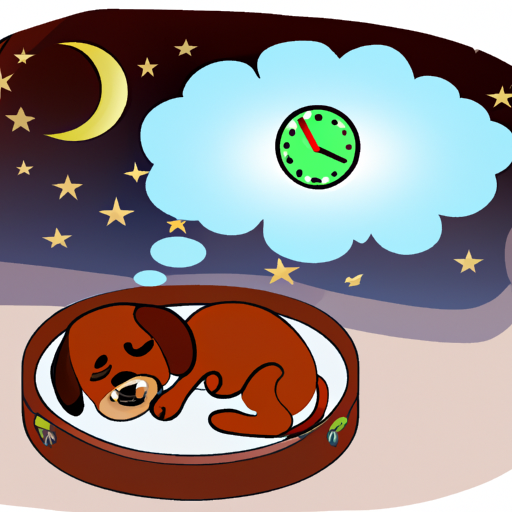Introduction
As a new puppy parent, you might be wondering about your little furball’s sleep patterns. You may be asking yourself, “How much should a puppy sleep?” Well, you’re not alone. Sleep is absolutely crucial to your puppy’s growth and development. Let’s delve into the specifics to help you understand your pup’s snooze needs.
The Importance of Sleep for Puppies
Just like human babies, puppies need plenty of sleep to grow and develop. Sleep is when their little bodies restore energy, build muscle, strengthen the immune system, and process learning and memory.
In particular:
- Restoration: During sleep, your puppy’s body works hard to repair muscles and tissues, produce growth hormones, and build energy for the next day.
- Cognitive Function: Sleep is also critical for your puppy’s brain development. It’s during sleep that they process all the new things they’ve learned during their wakeful hours.
- Emotional Health: Adequate sleep helps your puppy maintain a balanced emotional state. Lack of sleep can lead to stress and anxiety.
Puppy Sleep Hours: What’s Normal?
The answer to “how much should a puppy sleep” varies depending on their age, breed, and activity level. But typically, puppies sleep anywhere between 18 to 20 hours a day.
Here’s a rough guide:
| Age | Sleep Duration |
|---|---|
| Newborn to 4 weeks | 22 hours |
| 1 to 3 months | 18-20 hours |
| 3 to 6 months | 16-18 hours |
| 6 months and above | 12-14 hours |
Remember, these are just general guidelines. Every puppy is unique and may have slightly different sleep needs.
Recognizing Sleep Deprivation in Puppies
It’s important to ensure your puppy is getting enough sleep. Sleep deprivation can lead to various problems, including:
- Behavioral Issues: A tired puppy can become cranky, hyperactive, or have difficulty focusing on training.
- Health Problems: Chronic sleep deprivation can weaken the immune system, making your pup more susceptible to illnesses.
- Growth Delays: Lack of sleep can interfere with your puppy’s growth and development.
Signs of sleep deprivation in puppies include excessive yawning, red or puffy eyes, lack of energy, and decreased appetite. If you notice these symptoms, it might be time to adjust your pup’s sleep schedule.
How to Help Your Puppy Sleep Better
Ensuring your puppy gets enough sleep is a key part of being a responsible pet parent. Here are some tips to help your puppy sleep better:
- Create a Comfortable Sleep Environment: Make sure your puppy has a cozy, quiet place to sleep. A comfy bed in a quiet corner works great.
- Establish a Routine: Consistency is key. Set regular feeding, play, and sleep times to help regulate your pup’s internal clock.
- Limit Late-Night Activity: Avoid stimulating activities close to bedtime, as this can make it harder for your puppy to wind down.
The Effect of Diet on Puppy Sleep
Your puppy’s diet can have a big impact on their sleep. A diet rich in protein, vitamins, and minerals supports restful sleep, while a poor diet can lead to restless nights.
- Protein: Essential for growth and energy.
- Vitamins and Minerals: Necessary for overall health and well-being.
- Carbohydrates: Provide energy, but should be fed in moderation as they can cause spikes and drops in energy levels.
FAQ
Q1: My puppy seems to sleep all the time. Is this normal?
A: Yes, it’s normal for puppies to sleep a lot. Puppies grow rapidly and need plenty of rest to support their development.
Q2: How can I tell if my puppy is getting enough sleep?
A: Signs of sufficient sleep include your puppy being active and playful during their awake hours, and settling down easily for naps and nighttime sleep.
Q3: My puppy seems restless at night. What can I do?
A: Make sure your puppy has had enough exercise during the day, and try to establish a consistent bedtime routine. If restlessness continues, consult with your vet.
Q4: Does my puppy need a special bed?
A: While not necessary, a comfortable bed can help your puppy sleep better. The bed should be large enough for your pup to stretch out, but cozy enough to feel secure.
Conclusion
Understanding your puppy’s sleep needs is crucial to their health and well-being. With the right amount of sleep, a balanced diet, and a comfortable sleeping environment, your puppy will have the energy and vitality to grow and thrive. As a caregiver, your role in this process is invaluable.



